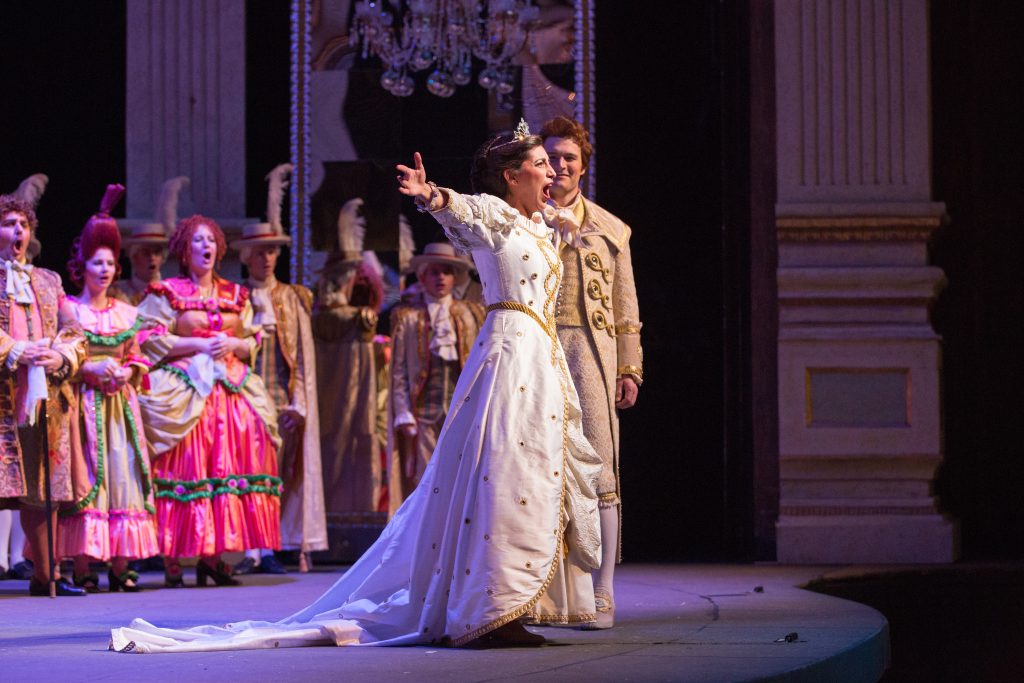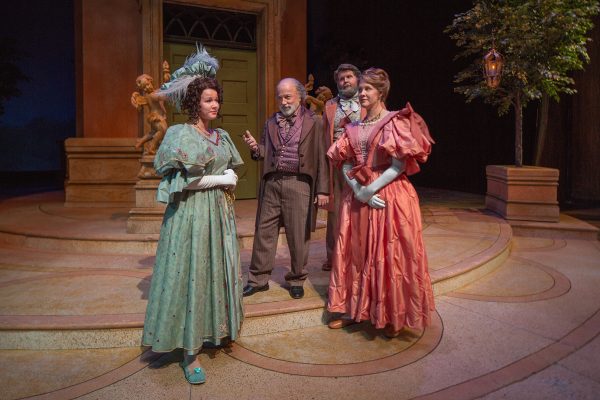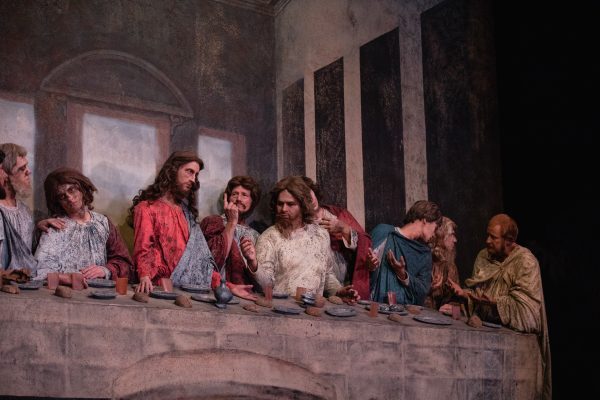The curtain rises in Rodeheaver Auditorium. A brightly costumed tenor steps forward on the stage and begins bellowing in a language you don’t understand. So you look up at the supertitles. You listen to music all the time, but these arias didn’t make it on your playlist. Still, you’re required to sit through it. Why?
What if opera’s not your thing?
The world is full of the arts—drama, literature and music. The arts are part of our culture. They bind us together. As a student at Bob Jones University, you will get to experience a whole range of art through the yearly Concert, Opera, and Drama Series. But what if you’re not into opera? Will you still enjoy the show?
Dr. Darren Lawson, dean of the School of Fine Arts and Communication, says, “Most everyone loves a good story, and the operas are a form of musical storytelling.”
Just because you’ve never seen an opera before, doesn’t mean it won’t hold your interest. There are many elements of opera beyond just the music that can easily take your breath away.
“Speaking for myself, I am interested in athletic contests, robotics, scientific experimentation, sculpture—you name it. None of those is my area of study or expertise, but because God gave me an inquisitive mind, I like a wide range of experience,” says Christa Habegger, of the department of vocal studies. “Embracing new experiences and pursuits will almost always result in having greater empathy with people you meet in the community or when you travel—people who may need the Gospel and with whom you can find common ground if you have lots of interests.”
What can you get from going to an opera?
A Well-Rounded Education
At BJU, you are learning more than just what is in your textbooks. You are getting a liberal arts education which helps to make you a more well-rounded person.
“The BJU operas are part of our cultural mandate to expose our students to the best examples of culture, which rounds out their liberal arts training,” says Dr. Lawson. “Cultural exposure gives you a polish that will set you apart from your counterparts from other universities. It will help you stand out to potential employers out there who are looking for well-rounded individuals in their workforce.”
The Thrill of Watching the Best of the Best
Opera is the sport (and art) of the voice. The high level of strength and skill required from a performer leads Mrs. Habegger to call opera the “vocal Olympics.” In watching opera, you are watching men and women using their God-given talent to the best of their ability. God gave each of us gifts for a reason. There is excitement in watching what only years of study and training has accomplished.
“Just as spectators are awed by athletic feats on the field or court, so audience members are thrilled by a stunning rendition of the Mad Scene from Lucia, to give a current example,” Mrs. Habegger says.
An Experience Few Others Get
You’re being given a chance to see for free what millions across the world pay hundreds of dollars to see—high quality performances by top notch singers—without even leaving campus.
Every experience we have is a blessing from God. Many people long for the chance to experience what you might take for granted.
Mrs. Habegger continues to say that “beauty and excellence are always culturally relevant, and they never go out of style. As long as we have students majoring in voice, we will study and perform opera, just as students who are majoring in drama will continue to study and perform Shakespearean plays, and artists will study the great masters. It’s important and enriching to reach for high goals. Opera is such a pinnacle for many reasons.”
The Chance to See Music Used as a Tool
Music, like everything in life, can be used as a tool—as a ministry. It was created by God and shows His glory.
“Music has always been a powerful, expressive tool. In fact, God designated song as the means His people were to use to praise Him. . . . The study and performance of opera are invaluable in honing a singer’s skills. And singers are not the only ones who benefit,” says Mrs. Habegger.
What should you do before you watch an opera?
Look up the plot summary.
If you know what is going on already, you won’t be as reliant on the supertitles during the performance. You can easily Google the plot online. Or if you want more information, BJU offers SMART performance guides online that give the story and history of each opera performed.
Listen to some of the music.
As Mrs. Habegger says, “the more you know about opera, specifically the opera currently in production at BJU, for instance, the more you will enjoy the performance. Listening to some YouTube recordings of the arias and reading the story beforehand will boost understanding and appreciation.”
Prepare to relax and enjoy it.
Even if you’re not a music major, you can still have fun at the opera. You’re getting a much needed distraction from homework and a night off with your friends. Whatever your opinion, prepare to enjoy the show and all the hard work your fellow students have put into it.








